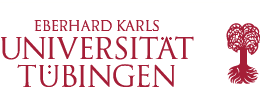Visual information processing in perception and action
Winter term 2021/22 / Fr. 14:15-15:45 (virtual / in Zoom)
Guests are welcome! (i.e., if only a single talk is of interest to you, please feel free to stop by for this specific session).
New (as of Wed., Dec. 1st, 2021): Due to the rapidly
deteriorating Corona situation, we -- sadly -- decided to go back to
virtual meetings (Zoom). For instructions of how to join us, please
see the following room in Ilias:
https://ovidius.uni-tuebingen.de/ilias3/goto.php?target=crs_2525165.
- 2021-10-22 Fri 14:15-16:00
- postponed
- 2021-10-29 Fri 14:15-16:00
- Planning session: If you write a thesis in our group, or if you plan to do so, or if you are a research assistant/HiWi: Please come to this session such that we can plan the different talks.
- 2021-11-05 Fri 14:15-16:00
- postponed
- 2021-11-12 Fri 14:15-16:00
- Hamit Basgöl: How to use the machine learning cloud of Tübingen University?
- Journal Club: Hamit Basgöl presents: Nassar, M. R., Rumsey, K. M., Wilson, R. C., Parikh, K., Heasly, B., & Gold, J. I. (2012). Rational regulation of learning dynamics by pupil-linked arousal systems. Nature Neuroscience, 15(7). https://doi.org/10.1038/nn.3130
- 2021-11-19 Fri 14:15-16:00
- Iris Schnepf: Unconscious priming in fMRI
- 2021-11-26 Fri 14:15-16:00
- David Wiedner: Double-Bayes factor issues
- Journal Club: Kriti Bhatia; Grünbaum, T. (2017), The Perception-Action Model: Counting Computational Mechanisms. Mind and Language, 32: 416-445.
- 2021-12-03 Fri 14:15-16:00
- Hamit Başgöl: Pupillometry and pupil dilation analysis methods
- Iris Schnepf & Christian Hepting: Ultra rapid object recognition
- 2021-12-10 Fri 14:15-16:00
- Lasse Schlör: MSc results talk
- Sascha Meyen: Quantifying the Contribution of Top-Down Information in Visual Perception Using Metacognition (Planning Talk)
- 2021-12-17 Fri 14:15-16:00
- Hamit Başgöl: Investigating Pupil-linked Arousal to Complex and Statistically Uncertain Auditory Patterns (Planning Talk)
- JournalClub: Florian Ebmeier presents Graves, A. (2011). Practical variational inference for neural networks. Advances in neural information processing systems, 24.
- 2022-01-14 Fri 14:15-16:00
- Florian Ebmeier: current work
- Journal Club: Sascha Meyen presents Bullock, J. G., & Green, D. P. (2021). The Failings of Conventional Mediation Analysis and a Design-Based Alternative. Advances in Methods and Practices in Psychological Science. https://doi.org/10.1177/25152459211047227
- 2022-01-21 Fri 14:15-16:00
- Alexander Blöck: Next steps in building a comfortable brain-computer interface based on visual evoked potentials
- JournalClub
- 2022-01-28 Fri 14:15-16:00
- Kriti Bhatia: Mysteries of Manual Estimation: Is there a Garner effect or not?
- 2022-02-04 Fri 14:15-16:00 (Meeting will be on Zoom)
- Liad Mudrik, Tel-Aviv University: Theories of consciousness: background, predictions and empirical testing: For centuries, consciousness was considered to be outside the reach of scientific investigation. Yet in recent decades, more and more studies have tried to probe the neural correlates of conscious experience, and several neuronally-inspired theories for consciousness have emerged. In this talk, I will focus on four leading theories of consciousness: Global Neuronal Workspace (GNW), integrated Information Theory (IIT), Recurrent Processing Theory (RPT) and Higher Order Theory (HOT). I will first shortly present the guiding principles of these theories, and compare them. Then, I will present the results of a large-scale quantitative and analytic review we conducted, examining all studies that either empirically tested these theories or interpreted their findings with respect to at least one of them. The analysis provides a bird's-eye view of the field, revealing key trends in the way these theories have been examined and studied. I will then ask what would be the best way to empirically test the theories, while taking into account some of the biases and trends we found.
- 2022-02-11 Fri 14:15-16:00
- Colloquium postponed (stay tuned)
- Your talk:
-
When preparing a talk for our colloquium, please:
- Practice your talk!
- Send a PDF-file (and if available a PowerPoint file) of the final version of your talk by email to V. Franz before the talk. Details for the PDF-file: 1 slide per page and make sure that you do NOT create separate pages for each step of the animations. Give this PDF-file a sensible name. E.g., colloq-(your-last-name)-(date).pdf
- Adhere to the time-limits during your talk. Practice that!
- Present data as graphs (supplemented but not supplanted by numerical statistics).
- Provide your name, the date of your talk, your institution (often this is simply: University of Tübingen), etc. at the title-slide.
- Practice your talk!
- Journal club:
- 5-10 min presentation + 15-10 min discussion (in total app. 20 min; please make sure you adhere to these time-limits!). In the journal club a member of our group present an influential, scientific article relevant to our current work. Articles should typically be recent (e.g., 3-5 years), but could also be older if of special interest. Articles will be available at our file-server (with the path being e.g., EC-STORE/literature/articles/journal-club-WS2021-22), please ask a member of our group if you do not know how to access those. Please make sure that a meaningful reference (containing title, author, year, journal) is presented at this web-page (either by you or by sending an email to V. Franz) and that the full APA-reference in the correct APA-formatting is present on the title-slide of your presentation (besides the typical things that should always be on a title slide: your name, the date of your talk, your institution (often this is simply: University of Tübingen) .

